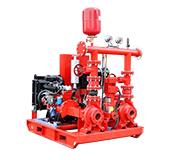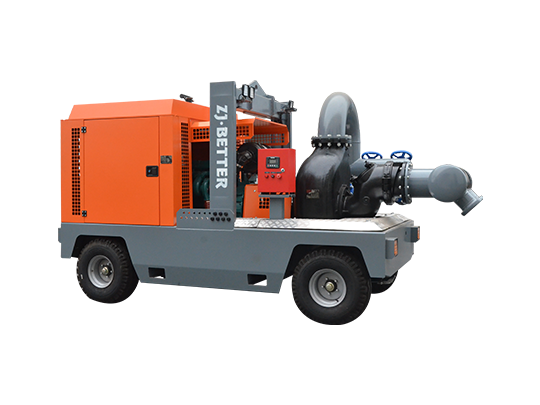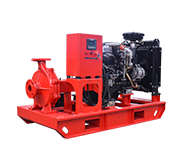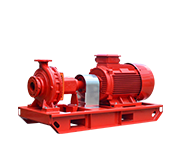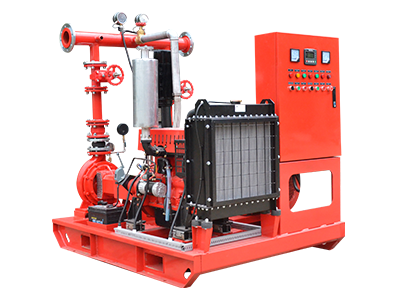- Fire Pump System
-
- UL-Listed Fire Pump SetEDJ End Suction Fire Pump SetEDJ Fire Pump SetEJ Small Flow Fire Pump SetFire Pump PackagesContainerized fire pump setDiesel Fire Pump SetED Small fire pump setElectric Jockey Fire Pump SetFire Pump Set with Jockey PumpFire Pump SystemSplit Case Fire Pump SetMutistage EDJ Fire Pump SetDiesel Fire Pump Set with Jockey PumpFire Fighting Pump SystemElectric Diesel Jockey Fire Pump SetFire Fighting Pump Set with Jockey PumpSmall Capacity Electric Fire Pump SetDJ Fire Pump Set with Jockey PumpEJ Fire Pump SetED Fire Pump Set (Electric+Diesel pump)Diesel Engine Fire Pump SetDiesel Fire Jockey PumpSmall Fire Pump SetEDJ Fire Pump SystemFire Water Pump SetFire Pump AssemblyDJ Small Flow Fire Pump SetCummins Engine Fire Pump Set
- Mobile Pump Unit
-
- Split Case Series Mobile Pump TruckSelf Priming Series Mobile Pump TruckCentrifugal diesel driven dewatering pumps open frame trailerFlow-mixing Mobile Pump TruckFlow-mixing Mobile Pump TruckManure Pump TruckP12 modle mobile Pump truckP10 Modle Mobile Pump Truck1000m³Self Priming Series Mobile Pump TruckLarge Flow Non-Clogging Mobile Fire Pump TrailerTrailer Mounted Fire PumpFire Emergency Mobile Pump TruckDiesel Engine Emergency Mobile Trailer Pump
- Diesel Fire Pump
-
- UL Listed Diesel End Suction Fire PumpXBC-S Diesel Split Case Fire PumpXBC-IS Diesel End Suction Fire PumpXBC-D Diesel Multistage Fire PumpVertical Turbine Diesel Engine Fire PumpDiesel Engine Single-Stage Centrifugal PumpXBC-IS Diesel End Suction Fire Fighting PumpXBC-S Diesel Engine Split Case Fire PumpDiesel Engine End Suction Fire PumpXBC-IS Diesel End Suction Fire PumpsZWC Diesel Engine Self Priming Pump for IrrigationDiesel Engine End Suction Fire Fighting PumpXBC-S Heat Exchange Diesel End Suction Fire PumpXBC-XA Diesel Engine End Suction Fire PumpXBC-IS Diesel Engine Fire PumpDiesel Engine End Suction Fire PumpXBC-IS Diesel Engine End Suction Fire PumpXBC-ISO Diesel Fire Fighting PumpPortable Fire PumpFire Booster Pump

Email: zjbetter@119pump.com
Tel:+86 15336708022(Gloria) +86 13306708055 (Ivy) +86 13357006058 (Serena) +86 13357022877 (Wendy) +86 17757009882(Kate)
Fax:0086-570-3010238
-
High-Flow Fire Pumps vs. High-Pressure Fire Pumps
High-Flow Fire Pumps: Designed for delivering large volumes of water, ideal for applications like industrial plants or storage facilities. High-Pressure Fire Pumps: Used for overcoming significant elevation or long pipe runs. Essential for high-rise buildings or facilities with complex layouts.
View more +
-
Fire Pump Skids vs. Modular Fire Pump Units
Fire Pump Skids: Pre-assembled on a single skid for ease of installation; typically include pump, motor/engine, controller, and piping. Best for quick deployment and compact setups. Modular Fire Pump Units: Separate components that are installed individually. Offers flexibility for customization but requires more time and effort for assembly and installation.
View more +
-
Which Type of Fire Pump Handles Abrasive Fluids Best?
Centrifugal fire pumps with wear-resistant materials, such as those with hardened impellers or casings, are ideal for abrasive fluids. End-suction pumps are also a good option for such applications.
View more +
-
Which Fire Pump Model Fits Tight Installation Spaces?
Horizontal split-case or vertical in-line fire pumps are excellent for tight spaces due to their compact design. They offer flexible installation options without compromising performance.
View more +
-
Which Fire Pump Testing Method Is the Most Reliable?
Flow testing with calibrated flow meters is the most reliable method. It ensures the pump meets its rated performance under operational conditions.
View more +
-
Which Jockey Pump Should You Use with a Diesel Fire Pump?
A small, reliable electric jockey pump that matches the system's flow and pressure requirements is best to maintain system pressure and reduce the diesel pump's wear.
View more +
-
Which Fire Pump Controller Features Are Essential?
Automatic start and stop controls. Alarm systems for faults. Data monitoring and connectivity for remote management. Compliance with NFPA and UL/FM standards.
View more +
-
Which Fire Pump Materials Are Best for Chemical Resistance?
For chemical resistance, fire pumps made with bronze or stainless steel impellers and casings are ideal. These materials are highly resistant to corrosion caused by chemicals or saltwater.
View more +
-
Which Fire Pump Configuration Minimizes Maintenance Costs?
Pre-assembled fire pump packages with integrated components minimize maintenance by reducing installation errors and providing easier access for servicing. Electric fire pumps generally require less maintenance compared to diesel pumps due to fewer moving parts.
View more +
-
Which Fire Pump Type Is Best for Multi-Tenant Buildings?
Electric fire pumps are typically best for multi-tenant buildings due to their quiet operation, low emissions, and ability to handle continuous duty cycles. However, diesel fire pumps are also suitable for backup power in case of electrical failures.
View more +
-
Which Fire Pump Suits Renewable Energy Facilities?
Renewable energy facilities often require reliable fire protection systems that integrate seamlessly with modern technologies. Electric fire pumps are ideal due to their compatibility with renewable power sources like solar or wind energy. Additionally, UL-listed and NFPA-compliant fire pumps ensure safety standards are met.
View more +
-
Why Invest in a Jockey Pump for Your Fire Pump System?
A jockey pump maintains system pressure by compensating for small leaks, reducing wear on the primary fire pump. Investing in a jockey pump improves the overall efficiency and longevity of the fire protection system.
View more +
-
Why Fire Pump Flow Rates Impact Overall System Efficiency
Flow rates dictate the ability of the fire pump to deliver water efficiently during a fire. Properly calibrated flow rates ensure sufficient water supply to extinguish fires while avoiding wasted energy and potential system strain.
View more +
-
Why Do Fire Pumps Require Regular Calibration?
Fire pump calibration ensures that pressure and flow rates are maintained at the required levels specified by NFPA standards. Regular calibration helps identify performance deviations early, ensuring reliable operation during emergencies and extending the pump’s lifespan.
View more +
-
Why Do Fire Pumps Require Regular Calibration?
Fire pump calibration ensures that pressure and flow rates are maintained at the required levels specified by NFPA standards. Regular calibration helps identify performance deviations early, ensuring reliable operation during emergencies and extending the pump’s lifespan.
View more +
-
Why Is Proper Fire Pump Sizing Crucial?
Proper fire pump sizing ensures that the system delivers adequate water pressure and flow to meet the building's fire safety requirements. Oversized pumps can cause inefficiencies, increased wear, and higher energy costs, while undersized pumps may fail to provide sufficient water during an emergency, compromising safety.
View more +
-
How to Calculate Fire Pump Flow Rate Requirements?
Assess Building Water Demand: Use hydraulic calculations based on sprinkler and hose demands. Reference NFPA Guidelines: Follow NFPA 13, 14, and 20 to determine flow rate and pressure. Use Formula-Based Calculations: For example:
View more +
-
How to Size a Fire Pump for Your Sprinkler System?
Calculate System Demand: Determine flow rate based on the sprinkler system’s specifications. Account for Friction Losses: Factor in pipe friction losses, elevation differences, and fittings. Choose the Correct Pump Curve: Match the required flow and pressure with a pump curve chart. Consult Experts: Work with fire protection engineers to validate sizing.
View more +
-
Why Fire Pumps Fail and How to Prevent It?
Common Reasons for Failure: Lack of maintenance (e.g., clogged strainers, corroded pipes). Electrical issues in motor-driven pumps. Fuel contamination in diesel pumps. Mechanical wear and tear, such as impeller damage. Improper system design or installation errors. Prevention Strategies: Implement a regular maintenance and inspection schedule. Conduct periodic testing as per NFPA guidelines. Use high-quality components and certified designs. Train operators to recognize early warning signs of failure. Invest in remote monitoring systems for real-time diagnostics.
View more +
-
Why Fire Pump Efficiency Impacts Insurance Rates?
Reduced Risk: Efficient fire pumps ensure quick water delivery, reducing the potential for fire damage. Lower Claims Probability: Higher efficiency leads to better fire suppression, lowering the likelihood of large insurance claims. Compliance with Standards: Insurers favor systems that meet or exceed performance standards like UL and NFPA. Operational Cost Savings: Efficient pumps reduce energy consumption, indirectly lowering overall building operational costs. Credibility for Underwriting: Demonstrated efficiency improves risk profiles, leading to favorable insurance rates.
View more +
-
Why Regular Fire Pump Testing Is Necessary?
Ensures Readiness: Routine testing verifies that the pump will perform as expected during an emergency. Compliance with Standards: Testing is mandated by regulations like NFPA 25 to maintain safety certifications. Detects Issues Early: Regular testing identifies potential failures, such as valve leaks or engine malfunctions, before they escalate. Extends Equipment Life: Preventative maintenance through testing prolongs the operational lifespan of fire pumps. Insurance Requirements: Many insurers demand regular fire pump testing to validate coverage. Minimizes Liability: Ensuring pumps are in good condition reduces legal and financial risks.
View more +
-
Why Electric Fire Pumps Are Becoming More Popular
Reliability and Efficiency: Electric fire pumps provide consistent performance with minimal fluctuations, making them highly reliable in emergencies. Lower Maintenance: Unlike diesel pumps, they require less frequent maintenance since they have fewer mechanical components. Eco-Friendly Option: With growing environmental concerns, electric pumps produce no emissions, aligning with green building standards. Space-Saving Design: They typically have a smaller footprint compared to diesel counterparts, ideal for space-constrained installations. Silent Operation: Electric pumps operate much quieter, an advantage in urban or indoor settings. Compliance and Innovation: Advanced control systems integrated with electric pumps make them future-ready and easier to monitor.
View more +
-
How to Identify Faults in Your Fire Fighting Pump?
Monitor Alarm Systems: Check for low-pressure or high-temperature alerts. Inspect Physical Components: Look for corrosion, loose connections, or damaged seals. Test Performance: Compare actual flow and pressure against rated values. Listen for unusual sounds that may indicate mechanical issues. Consult Professionals: If issues persist, call for a certified technician.
View more +
-
How to Size a Fire Pump for Your Sprinkler System
Calculate System Demand: Determine flow rate based on the sprinkler system’s specifications. Account for Friction Losses: Factor in pipe friction losses, elevation differences, and fittings. Choose the Correct Pump Curve: Match the required flow and pressure with a pump curve chart. Consult Experts: Work with fire protection engineers to validate sizing.
View more +
-
How to Test Your Fire Pump for Compliance with NFPA Standards?
共享 您说: How to Choose the Right Fire Fighting Pump for Your Building How to Install a Fire Pump System Safely How to Maintain Your Fire Fighting Pump for Long-Term Use How to Test Your Fire Pump for Compliance with NFPA Standards How to Identify Faults in Your Fire Fighting Pump How to Calculate Fire Pump Flow Rate Requirements How to Size a Fire Pump for Your Sprinkler System ChatGPT 说: Here’s a detailed breakdown for each topic you’ve listed, tailored for your audience: How to Choose the Right Fire Fighting Pump for Your Building Evaluate Building Requirements: Assess the building's size, purpose, and fire risks. Consider local fire codes and insurance requirements. Determine Flow Rate and Pressure Needs: Calculate the minimum flow rate (GPM or LPM) required for fir
View more +

